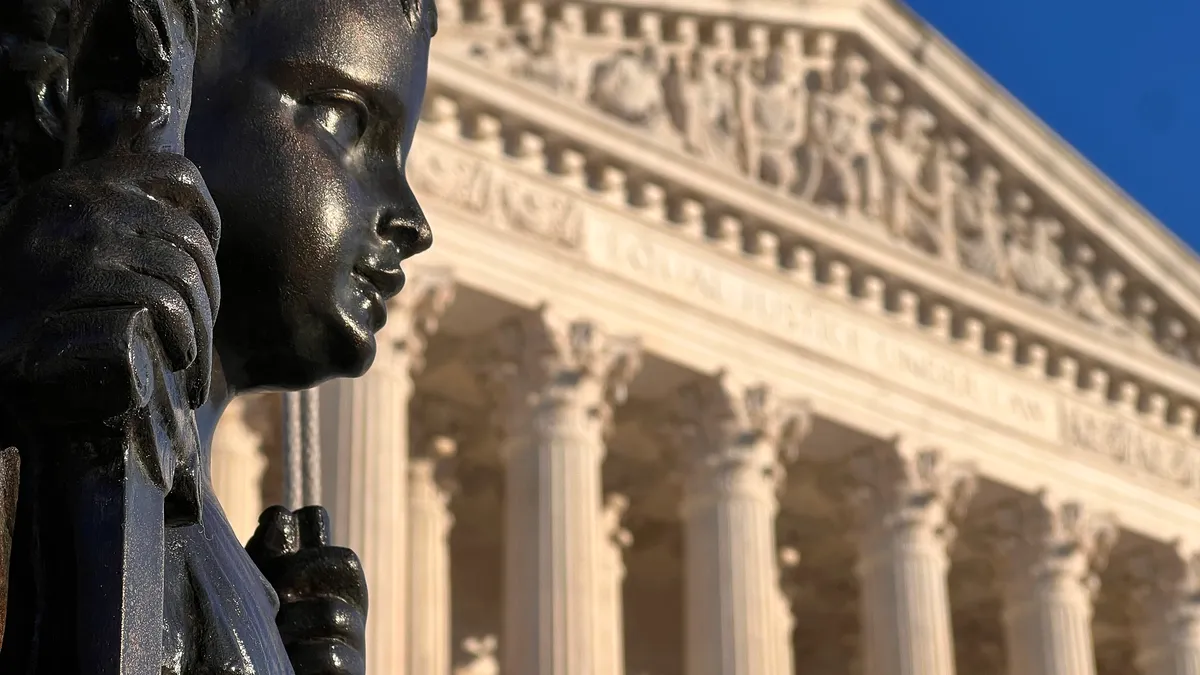Dive Brief:
- Businesses should review their tax positions to see if they are dependent on a federal regulation that might be vulnerable to a challenge in the wake of the U.S. Supreme Court’s Friday ruling in the Loper Bright Enterprises v. Raimondo case, according to Robert Kovacev, an attorney with the firm of Miller & Chevalier. The ruling struck down the so-called Chevron test that gave deference to a government agency’s expertise when a law is ambiguous.
- The 6-3 decision represents a sea change for businesses and the wide range of federal agencies that regulate them. The implications of the ruling extend well beyond the environmental regulator that the case centered on — it involved a National Marine Fisheries Service rule requiring companies to pay the costs of hosting federal agents on their boats to curb over-fishing — to include the U.S. Department of Labor and the Internal Revenue Service, and every other agency.
- “The implications for tax are potentially huge,” Kovacev said in an interview, noting that the U.S. Treasury and the IRS promulgate massive amounts of regulations, sometimes thousands of pages; for the 2017 Tax Cuts and Jobs Act, for example, for which there was previously a two-stage process to challenge. “We got rid of all that and now it’s easier for taxpayers to challenge them...Each judge is going to have to look at the regulation and do his or her own analysis instead of just deferring to what the IRS says.”
Dive Insight:
Much of the work of analyzing the tax and financial reporting implications of the Supreme Court decision will fall at the feet of CFOs, according to Eric Fader, a tax attorney and special counsel at the law firm of Duane Morris.
“If I was in the CFO’s role and I now know that the presumption that has been given to administrative interpretations are now no longer presumed to be correct, my cost benefit analysis of taking a position or continuing to litigate,” changes, Fader said, noting that a company’s strategy is going to be seen through, “a brand new lens because there’s a new framework for making these decisions.”
The ruling could have implications that affect both tax filings and tax positions taken in financial reporting, he said. For example, under Generally Accepted Accounting Principles and ASC 740, companies must report if they’re taking an “uncertain” tax position, he said. But if regulations are challenged, the company might want to change its strategy, he said.
“If I have in the past taken an income tax position that might be contrary to a Treasury regulation and that statute was ambiguous, but the Treasury Department’s interpretation was reasonable, I might have said I might need to record a liability,” he said. “In light of the court’s decision in stripping away the presumption that the agency is correct, I might have a better chance of winning. This might constitute a change in the expected outcome that gives me reason to reevaluate the financial reporting consequences.”
As for what tax regulations companies should look for to consider challenging, Kovacev suggested companies look for regulations that go beyond what the statutory text says. “Oftentimes there will be provisions of the code that says you have to do A, B and C to claim the tax benefit, and then the the IRS will say ‘oh, but you also need to do D and E and F,’” he said.
The full implications of the ruling for tax may not all be positive for corporations, Fader said. “Businesses may immediately view this as a big win but after further evaluation there may be unintended consequences,” he said in an interview. It could end up clogging courts with regulatory challenges and also chill the actions of regulators from whom some companies are awaiting guidance, he said.
The high court’s decision opening the door to potentially provide companies fresh options related to their corporate tax positions comes as partisan tension over tax policy and IRS funding has grown after Congress in 2022 approved $80 billion in extra funding for the agency as part of the Inflation Reduction Act, CFO Dive previously reported.
The IRS did not immediately respond to requests for comment.












